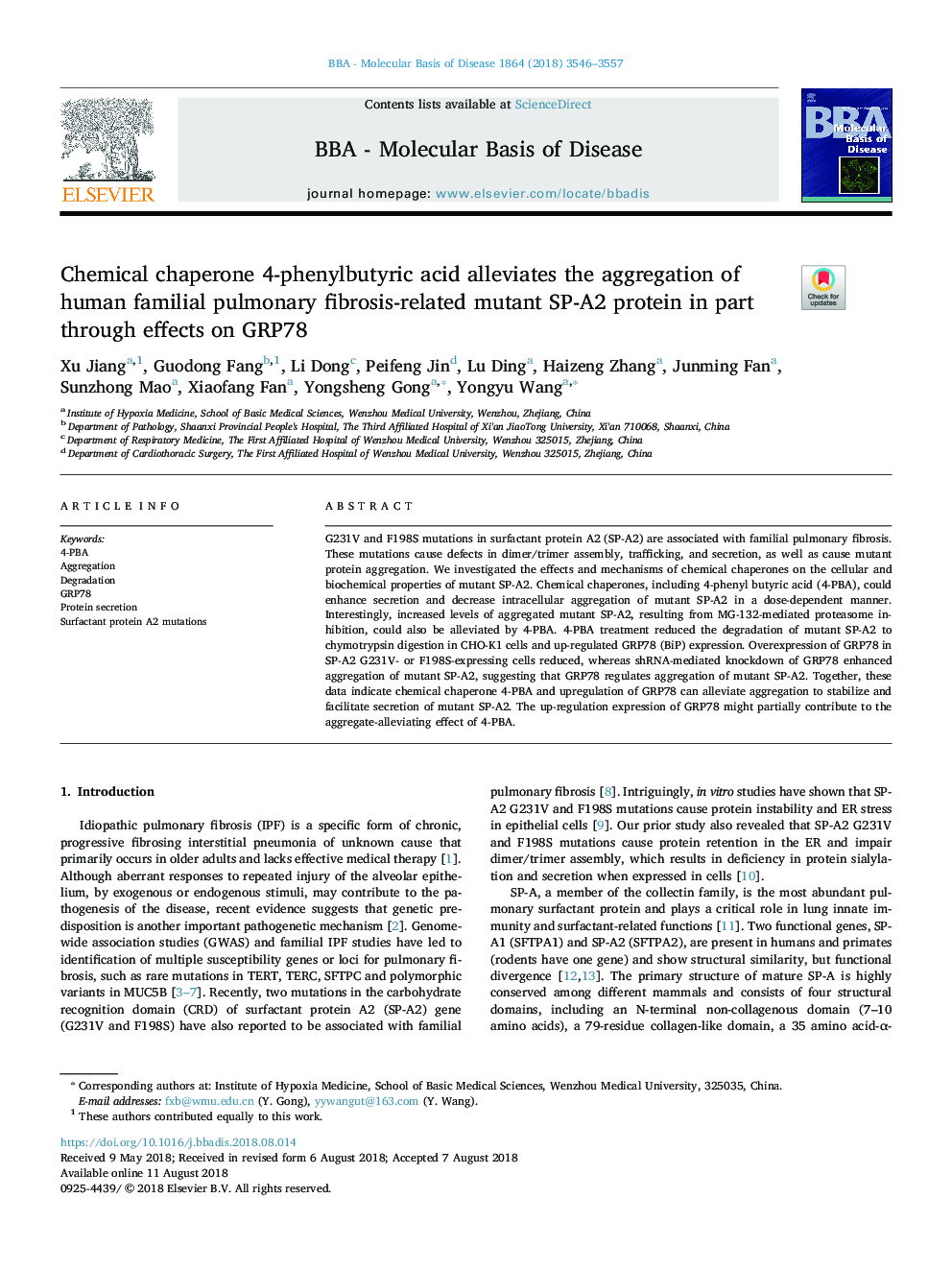| Article ID | Journal | Published Year | Pages | File Type |
|---|---|---|---|---|
| 8949206 | Biochimica et Biophysica Acta (BBA) - Molecular Basis of Disease | 2018 | 12 Pages |
Abstract
G231V and F198S mutations in surfactant protein A2 (SP-A2) are associated with familial pulmonary fibrosis. These mutations cause defects in dimer/trimer assembly, trafficking, and secretion, as well as cause mutant protein aggregation. We investigated the effects and mechanisms of chemical chaperones on the cellular and biochemical properties of mutant SP-A2. Chemical chaperones, including 4-phenyl butyric acid (4-PBA), could enhance secretion and decrease intracellular aggregation of mutant SP-A2 in a dose-dependent manner. Interestingly, increased levels of aggregated mutant SP-A2, resulting from MG-132-mediated proteasome inhibition, could also be alleviated by 4-PBA. 4-PBA treatment reduced the degradation of mutant SP-A2 to chymotrypsin digestion in CHO-K1 cells and up-regulated GRP78 (BiP) expression. Overexpression of GRP78 in SP-A2 G231V- or F198S-expressing cells reduced, whereas shRNA-mediated knockdown of GRP78 enhanced aggregation of mutant SP-A2, suggesting that GRP78 regulates aggregation of mutant SP-A2. Together, these data indicate chemical chaperone 4-PBA and upregulation of GRP78 can alleviate aggregation to stabilize and facilitate secretion of mutant SP-A2. The up-regulation expression of GRP78 might partially contribute to the aggregate-alleviating effect of 4-PBA.
Related Topics
Life Sciences
Biochemistry, Genetics and Molecular Biology
Ageing
Authors
Xu Jiang, Guodong Fang, Li Dong, Peifeng Jin, Lu Ding, Haizeng Zhang, Junming Fan, Sunzhong Mao, Xiaofang Fan, Yongsheng Gong, Yongyu Wang,
